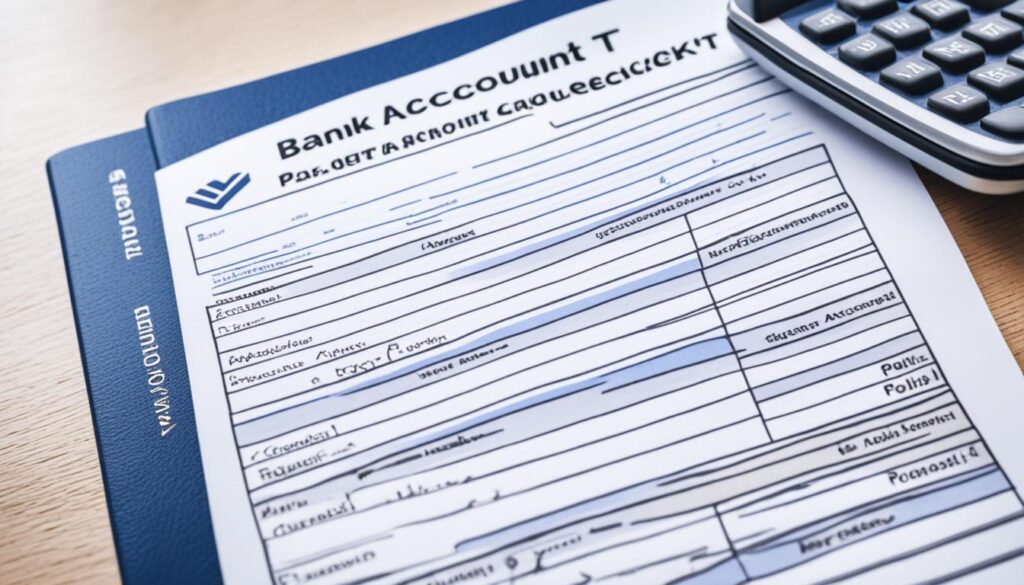Opening a bank account in Poland as a non-resident or expat is a strategic step when settling in the country. This process provides access to essential services and facilitates everyday financial transactions. Despite having around 600 banks to choose from, not all cater to international clients, making it crucial to research Polish banking regulations thoroughly before proceeding.
The Polish banking sector is known for its stability, offering expats and non-residents a 100% possibility of opening an account. However, challenges include the necessity of correct documentation and targeting the right branches or bankers, as some banks in Poland do not accept non-resident clients. Selecting a bank that offers multiple currency operations is essential since Poland uses the Polish Zloty instead of the euro.
Key Takeaways
- Non-residents can indeed open a bank account in Poland, although not all banks cater to them.
- It’s crucial to ensure all required documents are collected and accurately translated if necessary.
- Polish banks may offer multiple currency accounts, facilitating easier international transactions.
- Expats benefit from low fees, high security, convenient money transfers, and English language banking options.
- Understanding the varying requirements between banks can prevent application rejections.
The Importance of Opening a Bank Account in Poland for Expats
For expats settling in Poland, securing a local bank account is not merely a convenience—it is a necessity that ensures smoother financial transactions within the country. Opening a local account provides easy access to a range of banking services Poland has to offer, including online and mobile banking options, which are available in English with institutions like Bank Millennium. This accessibility is crucial for managing daily expenses, from utilities and rent to taxes.
One of the major advantages of expat banking Poland is the straightforward receipt of salaries and other payments. With a Polish account, expats can handle their financial operations seamlessly and avoid the high fees associated with using foreign accounts for local transactions.
Business-minded expats, particularly those who are self-employed, may find that opening a business bank account in Poland is essential. While it is a more complex process than setting up a personal account, it is crucial for managing business finances efficiently. Leading banks like Bank Pekao and PKO Bank Polski provide comprehensive solutions catering specifically to business needs.
“Banks in Poland must comply with anti-money laundering regulations, regulated by the Polish Financial Supervision Authority. This ensures a secure and trustworthy banking environment for expats.”
Moreover, many Polish banks, including PKO and MBank, offer attractive features such as multi-currency accounts, which are particularly beneficial for expats who frequently transfer money between different currencies. Institutions like Transferwise provide low-cost international transfers, ensuring competitive exchange rates without hidden fees.
Some banks even make it easier for non-residents by offering account opening services online. This is especially advantageous for those who have yet to arrive in Poland but wish to get their finances in order beforehand. Benefits such as fee waivers for the first six months or the provision of detailed account information in English make non-resident bank accounts Poland a viable and attractive option for many expats.
Ultimately, having a local bank account in Poland significantly enhances financial management for expats, making it easier to handle everyday expenses, receive payments, and even engage in business activities. The plethora of banking services Poland offers ensures that every expat can find an option that best suits their needs, providing a solid foundation for a comfortable and hassle-free stay in the country.
Types of Bank Accounts Available in Poland

Poland provides a wide range of banking solutions tailored to different financial needs, making it crucial to understand the options available. Whether you are an individual looking to manage your personal finances or a business owner seeking specialized services, knowing the types of accounts can help you make an informed decision.
Personal Accounts
Personal bank accounts in Poland are designed for everyday financial management. These accounts offer features such as access to online banking, debit cards, and low monthly fees. For example, the Millennium 360° account provides free maintenance if a minimum of five card or BLIK payments are made per month. Additionally, currency conversion transactions up to PLN 5000 per month are free from the bank’s margin.
Business Accounts
Business banking accounts in Poland cater to the unique needs of companies. They include merchant banking solutions, multi-currency services, and specialized management tools. Santander Bank Polska, for instance, offers various corporate accounts with monthly service fees ranging from 25 to 150 PLN, depending on the account balance. Non-residents can open these accounts but need to visit a branch in Poland.
Savings Accounts
Savings accounts in Poland are perfect for those looking to accrue interest over time. They offer higher interest rates compared to personal bank accounts and come with flexible deposit options. Banks like PKO Bank and Bank Pekao provide competitive interest rates and easy account management through online and mobile banking platforms.
Merchant Accounts
Merchant banking solutions are essential for businesses that handle online transactions or card payments. These accounts support various payment methods and offer features such as currency conversion and cashback on shopping transactions. Santander Bank Polska supports multi-currency transactions with direct links to foreign currency accounts via a mobile app.
Non-Resident Accounts
Non-resident accounts meet the bank account requirements Poland set for non-residents, offering flexible banking solutions for those without Polish residency. Only a few banks, like Santander Bank, PKO BP, and BNP PARIBAS, allow non-residents to open accounts. The account opening process generally takes between 3 and 20 days, and translation costs may apply.
For more detailed information about banking services in Poland, including the costs and other specifics, you can refer to this comprehensive guide.
Document Requirements for Opening a Bank Account
When it comes to opening a bank account in Poland, understanding the bank account document requirements is crucial. The prerequisites can differ significantly based on whether the applicant is a natural person or a company.
For Natural Persons
Individuals looking to open a bank account in Poland must provide specific banking documents. Commonly required documents include a valid passport or national ID, proof of address, and, in certain cases, a Polish Identification Number (PESEL). The PESEL number, analogous to a tax identification number, is obligatory for some banks, and it can be obtained through local administrative bodies in Poland.
Most banks also require proof of residency. For EU citizens, residence registration is necessary after a 90-day stay, while non-EU citizens often need a residence card. Additionally, some banks might ask for a confirmation of employment or proof of income, especially for non-EU clients.
For Companies
Opening a corporate bank account entails a more comprehensive set of documents. Companies must submit their Articles of Association, a detailed list of stakeholders or shareholders, and sample signatures of company directors. Most importantly, applicants need to provide excerpts from the Poland Business Register to verify the company’s legitimacy.
In terms of procedural differences, note that each bank in Poland has its unique set of requirements and may even necessitate physical presence to complete the application. Popular banks like mBank, PKO BP, ING Bank Śląski, Santander, Pekao, Millennium, and Citi Handlowy offer various account options, with specific documents needed based on the bank’s policy.
Finally, the stringent bank account document requirements are designed to comply with anti-money laundering (AML) regulations, ensuring a thorough Know Your Customer (KYC) process. Even though some banks in Poland may permit remote account opening, the majority still necessitate an in-person visit.
Steps for Opening a Bank Account in Poland

Non-residents and expats looking to manage their finances conveniently in Poland need to follow a structured process. Here are the essential steps for opening a bank account in Poland:
Choosing the Right Bank
To begin with, you need to choose a bank that aligns with your financial requirements. Poland offers a variety of banks like ING Bank Śląski, Millennium Bank, Bank BNP Paribas, Pekao Bank, and PKO Bank Polski. Each of these has unique advantages and features, so it’s essential to compare what each bank offers. From comprehensive service plans to low fees and advanced online banking Poland options, choose the one that suits you best.
Preparing Necessary Documents
The next step is to gather all the required documents. For individuals, you’ll need your passport or national identification card, proof of address, and possibly employment history. Companies need to provide articles of association, a list of stakeholders, director’s signatures, an excerpt from the Poland Business Register, and IDs of company representatives. Proper preparation can expedite your Polish bank account application.
Visiting the Bank
Once your documents are ready, the next step is to visit the selected bank branch. It is advisable to make an appointment to save time. Upon visiting, you will meet a bank representative who will guide you through the steps for opening a bank account. Although some banks offer remote account opening options, primarily, you need to be physically present, especially in Warsaw.
Submitting Your Application
During your bank visit, you will complete and submit your application form. Bank representatives are generally very helpful and guide you through the process, ensuring all necessary sections are filled out accurately. Once submitted, your application will undergo a verification process that could take up to two weeks.
Remote Account Opening Options
If visiting the bank in person is a challenge, consider the remote account opening options available. Certain banks in Poland facilitate remote account opening for non-residents and foreigners. This typically involves video identification and may require having an existing relationship with the bank, a residence permit, or a PESEL number. This method simplifies the Polish bank account application process, making it accessible from the comfort of your home.
Following these steps ensures a smooth transition into Poland’s financial ecosystem, allowing you to leverage the benefits of comprehensive banking services, high security, and efficient money management.
Advantages of Banking in Poland

The banking sector in Poland offers numerous benefits, making it an attractive destination for both residents and expats. From a comprehensive range of services to advanced security measures, let’s explore the key advantages of banking in Poland.
Comprehensive Banking Services
One of the significant benefits of banking in Poland is the wide array of services available. Banks like PKO Bank Polski, Pekao Bank, and mBank offer an extensive selection of financial products ranging from basic savings accounts to advanced investment options. This variety ensures that both personal and business banking needs are met comprehensively.
Low Fees
The Polish banking system is known for its competitive fee structure. Monthly account maintenance fees and transaction charges are kept relatively low to ensure affordability. For instance, ING Bank imposes a limit on the transfer of funds to minimize costs, making banking accessible to all. It’s an excellent example of how financial management in Poland can be optimized for cost-efficiency.
High Security
Polish banks prioritize the safety of customer funds and data. With stringent security protocols and deposit insurance for high amounts, customers can be assured that their assets are well-protected. This top-notch security is a cornerstone of the benefits of banking in Poland.
Simplified Payments and Transfers
Simplifying payment processes is another strong suit of the Polish banking system. Local bank accounts ease both domestic and international money transfers. For example, remote account opening, though it may take 2-4 weeks, facilitates an efficient financial process from anywhere in the world.
Online and Mobile Banking Convenience
Embracing technology, Polish banks offer advanced online and mobile banking services. Whether it’s making deposits, withdrawing money from ATMs, or transferring funds, the flexibility provided by online banking empowers customers to handle their financial management in Poland with ease. This convenience is particularly beneficial for expats and frequent travelers.
Choosing the Right Bank in Poland

When it comes to selecting a bank in Poland, there are several critical factors that expats should consider. Evaluating service offerings, fee structures, accessibility, and the bank’s overall reputation can significantly influence your banking experience.
For expats particularly, it is essential to choose expat-friendly banks in Poland that provide robust English-language services and support international transfers and business needs. Prominent Polish banks like PKO Bank Polski, Santander Bank Polska, ING Bank Śląski, and Bank Millennium are highly recommended due to their extensive service range, user-friendly digital banking options, and comprehensive customer support.
To help in making an informed decision, here is a comparison of some of the leading banks in Poland:
| Bank | Established | Branches | Main Features |
|---|---|---|---|
| PKO Bank Polski | 1919 | 1,200+ | Comprehensive services, wide network |
| Santander Bank Polska | 1857 | 500+ | Wide range of services for individuals and companies |
| ING Bank Śląski | 1994 | 350+ | Innovative digital banking, part of the Dutch ING Group |
| mBank | 2000 | Online-based | User-friendly mobile app, significant for both individuals and businesses |
| Bank Millennium | 1989 | 300+ | Advanced technology, personalized services |
Successful Polish bank comparison requires considering both short-term and long-term financial goals along with evaluating the fee structures and digital banking capabilities of each institution. Additionally, the quality of banking customer service in Poland can greatly affect your overall satisfaction, especially for expats needing reliable support and communication. By thoroughly analyzing these elements, one can make well-informed decisions about the best banking options available in Poland.
Understanding Polish Banking Fees and Policies
Understanding Polish banking fees and policies is fundamental when managing your finances effectively in Poland. Banks in Poland follow various structures with distinct fees and policies, which can impact your banking experience. Familiarizing yourself with these aspects will help avoid unexpected costs and better navigate the Polish banking system.
Monthly Account Maintenance Fees
In Poland, account maintenance costs Poland can significantly vary across different banks. On average, customers can expect to pay a monthly fee ranging from 15 to 20 Zloty, equating to under 5 Euros. This fee caters to essential services such as account management and customer support. Banks such as N26, operating under a full European banking license, allow individuals to open bank accounts online and enjoy perks including free cash withdrawals and no additional fees for euro transactions.
Transaction Fees
Polish bank fees also encompass various transaction costs. These include charges for local and international transfers, ATM withdrawals, and payments in foreign currencies. While some banks offer free cash withdrawals through specific networks, customers must be aware of the charges associated with out-of-network transactions and currency exchanges, particularly those involving non-Euro currencies. Services vary, and some accounts, like those offered by freelancers through N26, include free money transfers and additional benefits like cashback on purchases.
Overdraft Fees
Overdraft charges are another crucial factor in Polish banking policies. When an account holder exceeds their available balance, banks impose overdraft fees to cover the deficit. These charges can accumulate rapidly, making it essential for customers to stay informed about their bank’s specific overdraft policies and fee structures. Transparency regarding fees helps customers plan their finances better and avoid unnecessary costs.
In conclusion, understanding the diverse fee structures in Polish banks, including account maintenance costs Poland, transaction fees, and overdraft charges, is vital. This knowledge enables individuals and businesses to make well-informed decisions, ensuring a smoother and more efficient banking experience in Poland.
Conclusion
Establishing a strong banking experience in Poland is an essential step for expats and non-residents looking to manage their finances effectively. The range of banking options available, from personal and business accounts to savings and merchant accounts, provides ample opportunities for individuals and companies to find the most suitable financial services in Poland. Understanding the specific document requirements and navigating the local banking policies are crucial components of effective financial planning.
With the convenience of online and mobile banking, coupled with the security and reliability of Polish banks, expats can enjoy a seamless banking experience. Credit cards are widely accepted, and the ability to make international money transfers using the IBAN format adds to the ease of financial transactions. Moreover, low fees and simplified payment processes ensure that managing day-to-day financial activities remains cost-effective. However, it is important to consider ATM accessibility for frequent cash transactions and the added advantages of using banks such as Santander Bank, PKO BP, and BNP PARIBAS for their non-resident services.
By making informed choices and carefully planning each step, expats can take full advantage of the diverse financial services available in Poland. The efficient banking system allows for smooth handling of finances, from normal transactional requirements to more extensive business needs. Comprehensive services, such as those provided by ING Bank Śląski, enable non-residents to integrate seamlessly into the Polish economy, ensuring that their financial journey is both advantageous and efficient.
FAQ
How can non-residents open a bank account in Poland?
Why is it important for expats to open a bank account in Poland?
What types of bank accounts are available in Poland?
What documents are required for opening a bank account in Poland?
What are the steps for opening a bank account in Poland?
What are the advantages of banking in Poland?
How do I choose the right bank in Poland?
What should I know about Polish banking fees and policies?
Source Links
- https://globalbanks.com/open-bank-account-in-poland/
- https://blog.jeton.com/how-can-a-foreigner-open-a-bank-account-in-poland
- https://wise.com/au/blog/opening-a-bank-account-in-poland
- https://financialadvicepoland.com/expat-banking-in-poland/
- https://www.bankmillennium.pl/en/individuals/current-accounts/konto-millennium-360
- https://assistpro.lt/en/areas-of-activity/opening-a-bank-account-in-poland/
- https://azolalegal.com/en/banki-i-menchant/otkrytie-schetov-v-bankah/otkrytie-scheta-v-bankah-polshi/santander-bank-polska/
- https://jacobadam.com/opening-a-bank-account-in-poland-for-expats/
- https://www.ur.edu.pl/en/university/welcome-centre/incoming-staff/personal-bank-account?file=files/ur/import/private/22/Welcome Center/Bank account for a foreigner.pdf&cid=4446750
- https://www.linkedin.com/pulse/opening-bank-account-poland-step-by-step-guide-jakub-chajdas-7qzff
- https://www.b2bpay.co/how-open-bank-account-poland
- https://wise.com/us/blog/opening-a-bank-account-in-poland
- https://aksis.agency/blog/what-bank-should-a-foreigner-choose-in-poland-pros-and-cons-of-all-major
- https://blog.thekingdombank.com/opening-an-offshore-bank-account-in-poland/
- https://ondemandint.com/resources/opening-a-bank-account-in-poland/
- https://ondemandint.com/blog/best-banks-in-poland/
- https://www.xe.com/blog/living-abroad-tips/the-international-banks-for-expats-in-poland/
- https://n26.com/en-eu/blog/how-to-open-a-bank-account-in-poland
- https://cgolegal.com/opening-a-bank-account-in-poland/
- https://glc.pl/en/blog/opening-a-bank-account-in-poland-a-comprehensive-guide-for-non-resident-business-owners/
- https://rue.ee/bank-account-opening/poland/
- https://cgofinance.com/bank-account-for-a-foreign-company/

Comments